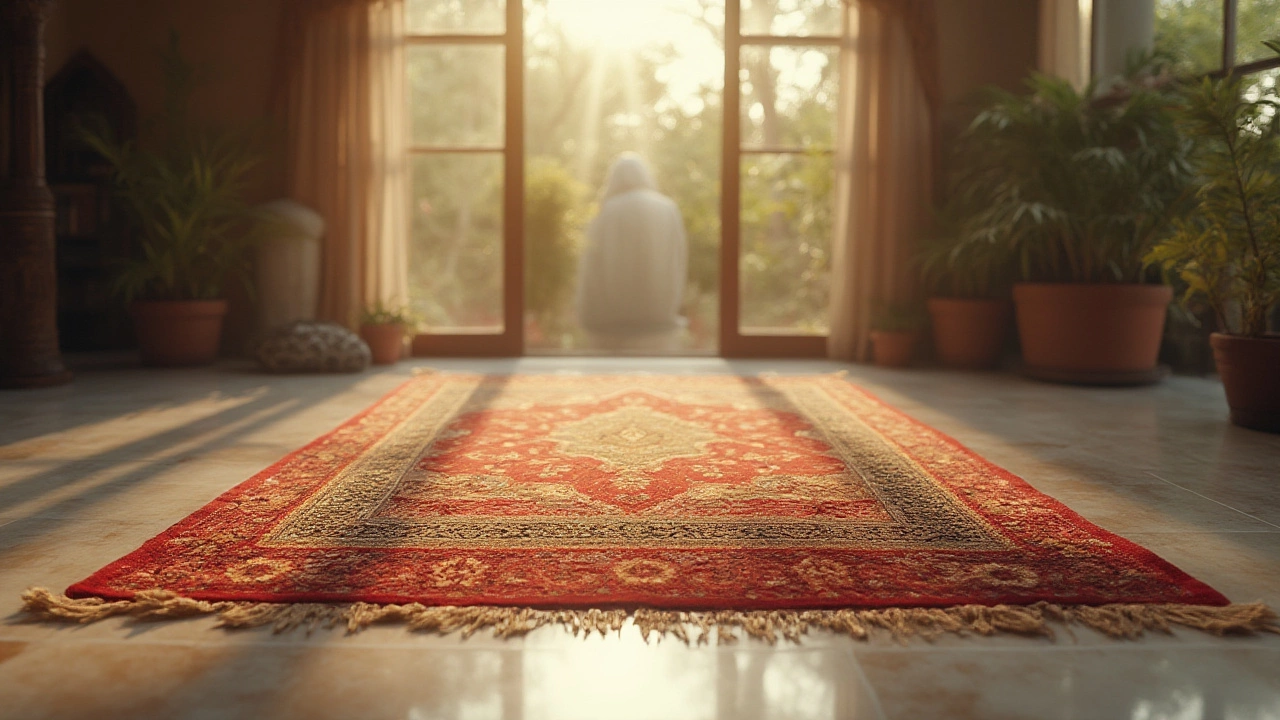
What Do Muslims Call the Prayer Rug? Meaning, History, and Everyday Uses
Ever wondered what Muslims call the rug used for prayer? Discover its name, deep meaning, care tips, and why it’s more than just a mat in Islamic homes.
View MoreWhen working with Salat Mat, a flat, cushioned surface Muslims use to perform the five daily prayers. Also known as prayer mat, it sets a clean, comfortable spot for worship and marks the direction of prayer.
The Salat Mat you pick ties directly to three core ideas. First, Prayer Rug, often made of woven cotton or synthetic fibers, adds softness and durability. Second, Qibla Direction, the line toward the Kaaba in Mecca, determines where you place the mat in your room. Finally, the material’s breathability influences comfort during long prostrations. A mat that blends cushion, easy‑to‑clean fabric, and a clear qibla marker helps you stay focused on worship rather than adjusting the surface.
Materials range from lightweight polyester for travel to thick, plush wool for home use. Thick pads can protect knees on hard floors, while thin designs fit in backpacks for on‑the‑go prayers. Look for non‑slip backing if you’re on tile or wood, and consider a stitched border that resists fraying. Many mats also feature embroidered verses that add spiritual meaning without sacrificing function.
Understanding these elements means you’ll know exactly what to look for when browsing the collection below. Below you’ll find articles that break down material choices, care tips, and how to match a mat to your living space or travel needs, giving you practical guidance for every prayer scenario.

Ever wondered what Muslims call the rug used for prayer? Discover its name, deep meaning, care tips, and why it’s more than just a mat in Islamic homes.
View More